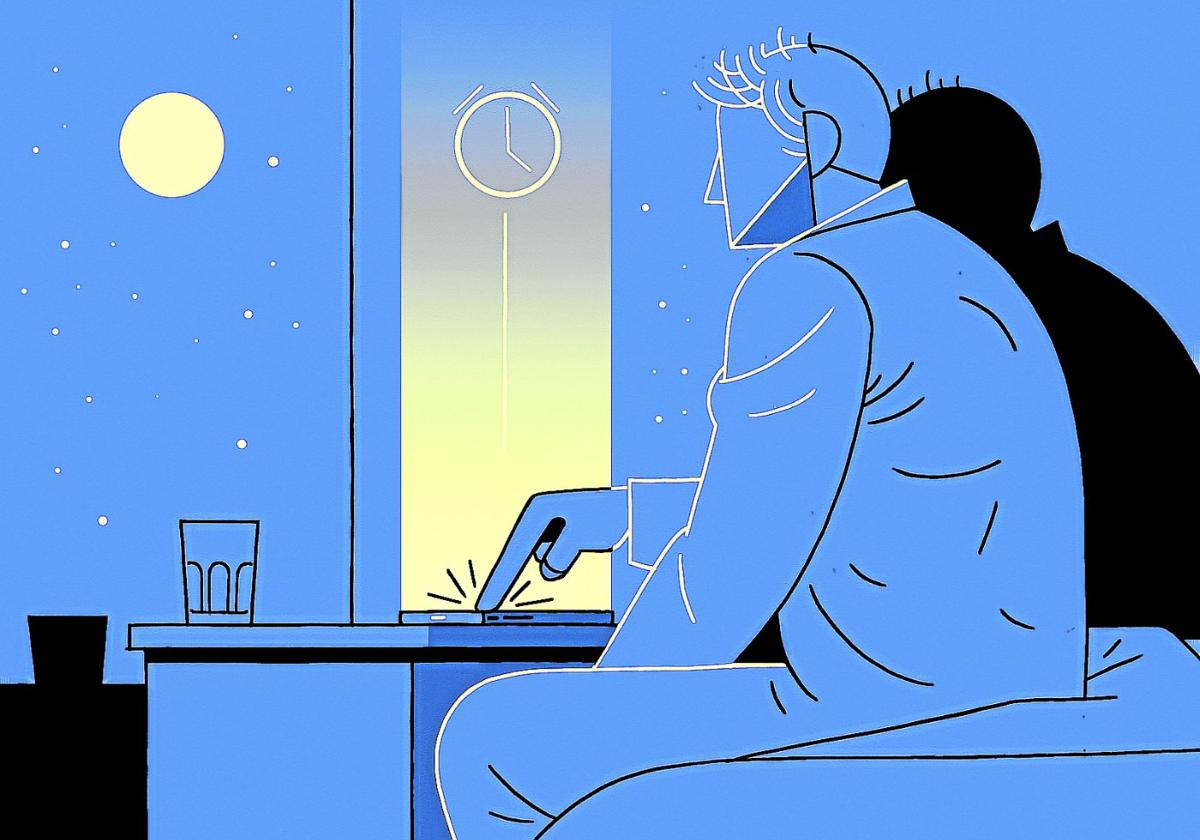

Sections
Highlight

Fermin Apezteguia
Madrid
Friday, 3 January 2025, 14:37
Conventional wisdom works because it has a trick up its sleeve. In general, for every piece of sage advice there is at least one other saying that says exactly the opposite. Playing all the cards, as we know, is the best way to get some of it right. When it comes to sleep, however, the saying 'the early bird catches the worm' seems to go unchallenged. So maybe we should ask why.
Specialists say that getting up at five o'clock in the morning can be as bad for your health as having too much of a lie-in. One is tough to do and the other is a fleeting pleasure, but they are just two sides of the same faux-pas. The ideal way to avoid drowsiness, headaches and very serious illnesses - some potentially fatal - is to allow the human body to follow its own circadian rhythms, those set by nature itself. So, do those really early risers win a prize as far as their health is concerned? Neurophysiologist Anjana López, from the Spanish sleep society's (SSS) special interest group for insomnia, provides more details.
"To a certain extent, yes." What is really healthy is to go to bed at night when you start to doze off and sleep without a clock for seven or eight hours. Don't set your alarm clock or mobile phone. Your body has a natural alarm clock that will tell you when you've had enough rest.
Nature has the answer. Animals go to bed at sundown and get up with the first rays of light. Humans function in the same way to the extent that a large part of the ailments that plague western society are related to poor sleep habits. Permanent tiredness, headaches, anxiety, heart attacks, strokes, even cancers. A good time to start falling asleep is at 11pm. If you get eight hours of rest, between seven and eight in the morning you will wake up of your own accord and ready to face the day.
A good time for dinner is half past eight in the evening. This gives you time to have a relaxed chat with your family, clear the table, prepare breakfast, and even watch a little television. Then the bedtime ritual has to begin. Washing dishes, skincare and teeth-cleaning, maybe a bit of bedtime reading. It goes without saying that mobile phones should be kept out of the bedroom. Those blue light screens are a no-no as they keep you awake. Think about it: two and a half hours is plenty of time to wind down from the day.
Well, not for everyone! Something as logical and apparently simple as living at the pace of human existence would require three conditions to be met. Companies and schools would have to adapt work and teaching schedules to the needs of the human body. Academic and work performance would improve. Two: the Spanish government would have to adopt once and for all and for the whole year the time that best corresponds to the country for health reasons. That is to say, when the clocks go back in October they should stay back. The third condition is a personal one. Each person must make a commitment to himself or herself to live a healthier life. Healthy diet, exercise and sleep.
As well as stopping the dizziness with the twice-yearly clock changes, it would be necessary to leave work earlier. "The cut-off time could be five o'clock in the afternoon." A well-rested worker who does not have to put in the hours just because it's company policy to do so is happier and performs better. In addition, family and social life would be made much easier. Schools should also operate only in the mornings. In this way, the early afternoon could be devoted to extracurricular activities. Children and adults would be much more rested in bed as a result.
A good part of it, because one of the main reasons for poor sleep in Spain is bad sleep habits. If you go to bed late feeling tired and stressed, it is normal to not get enough rest as a result. According to the Spanish Society of Neurology, 50% of adults and 25% of children lack quality sleep.
The challenge ahead requires not only a change in work, academic and personal habits. The new way of living well, as prescribed by sleep specialists, needs more awareness and understanding from the hospitality industry, its customers and the governing bodies who collect their taxes. Restaurants, bars, cafés and pubs generate 4.3% of Spain's GDP (gross domestic product). "As we have more light in summer, we get more tourism. People, moreover, stay on the terraces until late, regardless of whether they are on holiday or have work the next day. Who can change that?" asks Anjana López. Then she gives her simple, but firm, answer: "Well, it has to be done!"
Publicidad
Publicidad
Publicidad
Publicidad
Esta funcionalidad es exclusiva para registrados.
Reporta un error en esta noticia

Debido a un error no hemos podido dar de alta tu suscripción.
Por favor, ponte en contacto con Atención al Cliente.

¡Bienvenido a SURINENGLISH!

Tu suscripción con Google se ha realizado correctamente, pero ya tenías otra suscripción activa en SURINENGLISH.
Déjanos tus datos y nos pondremos en contacto contigo para analizar tu caso

¡Tu suscripción con Google se ha realizado correctamente!
La compra se ha asociado al siguiente email
Comentar es una ventaja exclusiva para registrados
¿Ya eres registrado?
Inicia sesiónNecesitas ser suscriptor para poder votar.